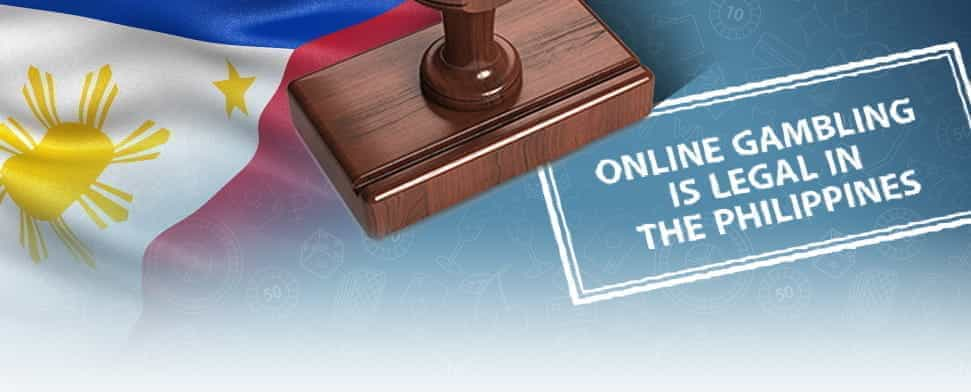Gambling In The Philippines History
- Gambling In The Philippines History Today
- Gambling In Philippines History
- Gambling In The Philippines History Timeline
- Gambling In The Philippines History Encyclopedia

When talking about gambling in Asia, the first place that usually springs to mind is Macau – also dubbed the Monte Carlo of the Orient – and it is with good reason. Often regarded as the gambling capital of the world, gambling tourism is Macau’s biggest source of revenue, accounting for 50 percent of its economy. However, Macau’s reputation as Asia’s gambling destination could change very soon considering the booming gambling industry in Southeast Asia.
Gambling in Macau is already beginning to lose steam. In 2016, Macau reported a 26-month slump in gambling revenue. While the figures have picked up slightly, it seems that the gambling industry in Macau hasn’t fully recovered. It was reported in January that Macau’s casino stocks tumbled after news that gaming revenue didn’t meet the median estimate of a 20 percent increase.
1067-A created the Philippine Amusement and Gaming Corporation (PAGCOR) and defines legal gambling in the Philippines. The Decree also defines PAGCOR’s powers and functions and how funding will be provided to the government corporation and how revenue will be collected and used by PAGCOR. While the Philippines is predominantly Roman Catholic, gambling in casino premises is a legal vice. (Number games jueteng, jai-alai-related masiao, and sports-related 'last two' are considered. Most Philippine gambling laws target operators and define illegal gambling activities. PD 1067-a, PD 1602, and PD 1869 have all been important gambling legislation which has defined and clarified authorized and unlawful gambling acts within the Philippines. Ending and the gambling in Philippine Basketball If this is your first visit, be sure to check out the FAQ by clicking the link above. You may have to register before you can post: click the register link above to proceed.
Meanwhile, the gambling industry in Southeast Asia has been on the rise in the past decade. Casinos are mushrooming throughout the region with at least three planned in Vietnam and two in the Philippines. Existing casinos in the region are also seeing steady growth in revenue.
Perhaps the best-known gambling hub in Southeast Asia today is Singapore. While there are heavy restrictions on locals to enter and gamble at the casino, the tables at the Marina Bay Sands continue to be a top draw for tourists. Fitch Ratings mentioned in a 2018 casino market outlook report that gross gaming revenue in Singapore’s casinos is likely to grow in 2018.
Source: Various
Fastest-growing casino hub
The Philippines on the other hand is currently among the fastest-growing casino hubs in Asia. The country is forecasting gross gaming revenue to grow by 9.4 percent to US$3.6 billion this year. Despite the casino attack in Manila last year which killed 36 people, the Philippines still recorded a 7.6 percent increase in revenue for 2017.
The main gambling hub in the Philippines is also known as Entertainment City, where integrated resorts (resorts that integrate features such as convention facilities, theme parks, and casinos) like the City of Dreams Manila, Solaire Resort & Casino and Genting’s Resorts World Bayshore are the main attractions.
In Vietnam, the government there has recently overturned a ruling which outlawed gaming for their local population. Besides that, casinos are among the projects planned for Vietnam’s Special Economic Zones (SEZs) in Phu Quoc and Van Don. These projects are expected to lead a wave of casino investment in the country. One of Vietnam’s biggest ongoing casino projects is the US$4 billion Ho Tram Strip project. Upon completion, the Grand Ho Tram Strip will include five integrated resorts and a golf course.
Among the main drivers of such investment in casinos and integrated resorts is the growing number of Chinese tourists in the region, who make up the bulk of visitors to these casinos and resorts. With the Belt and Road Initiative (BRI) well underway, accessibility to different parts of Southeast Asia is increasing. This is why Vietnam is planning to develop Phu Quoc and Van Don into a gambling hub, due to their proximity to China. Even small casino cities such as Sihanoukville in Cambodia is thriving with property prices ballooning due to the growing number of Chinese visitors.

With everyone rushing to cater to the flood of Chinese tourists, there could easily be a danger of oversupply. There are fears in the industry that the growing number of casinos could cannibalise the market.
Other fears that could possibly threaten these new casinos is the emergence of online gambling. The Philippines reported that growth in revenue from gambling in the country has mostly come from offshore gaming operators.

While it could be a good thing that governments are diversifying their sources of revenue, it could spell bad news for casino operators. However, since many casinos in the region offer more than just gambling but also theme parks, convention facilities and shopping malls – something online casinos cannot offer – the emergence of gambling websites shouldn’t be a cause of great concern.

Related articles:
`
The Philippines’ gambling laws are usually either order by the sitting President or passed through the Philippine legislature. Two regulatory agencies, PAGCOR and CEZA, oversee all of the Philippines’ gambling activities, including lotteries, casinos, betting, and more. This Philippine gambling laws guide will describe the most critical gaming laws which make up the structure of the country’s gambling framework.
Presidential Decree No.1067-a
In 1975, this presidential decree made by then-Philippine President Ferdinand Marcos became the nation’s first gambling law which established a government regulator, PAGCOR - the Philippine Amusement and Gaming Corporation. This Philippine gambling law also clarified which gambling activities would be authorized to participate in within the Philippines. PD 1067-a also gave PAGCOR regulatory authority over Philippine gaming. The legislation also required profit sharing with the government, as well as set rules and businesses standards for PAGCOR to follow.
Presidential Decree No. 1602
In 1978, Presidential Decree No. 1602 became the Philippines second gambling law made by the President which details penalties for illegal gambling. The law essentially also says that legal forms of gambling like sports betting, slots, poker, horse race betting, and more are only authorized if adequately licensed by a credible Philippine regulator. PD 1602 created an imprisonment punishment with a fine for gambling on unlicensed illegal games.
Presidential Decree No. 1869
In 1983, the President enforced his third gambling law. This law established a more specific guideline for PAGCOR to regulate the gambling industry. PD 1869, provides PAGCOR with a line by line guide on how to license, monitor, and authorize Philippine gambling. This law became particularly handy once PAGCOR started licensing corporations.
Republic Act 7922
In 1994, the Republic Act 7922 allowed for the Cagayan Valley to act as an exclusive economic zone to host gaming. This zone includes islands and the city of Freeport under its allowance as an economic zone. This Act created the Philippine government regulatory agency CEZA, or the Cagayan Economic Zone Authority; this government regulator oversees gambling within the special economic zone. PAGCOR has no authority over this zone as CEZA maintains exclusive powers.
Gambling In The Philippines History Today
Executive Order No. 13
Gambling In Philippines History
President Rodrigo Duterte authorized Executive Order No. 13 in 2017 and defined illegal gambling as any activity not licensed by a Philippine regulator. This Executive Order led agencies to fight illicit numbers games, restricted access to domestic online casinos and sportsbooks and cracked down on unlawful operations via raids.
Gambling In The Philippines History Timeline
Republic Act 10927
In 2017, the AMLC of the Philippines, also known as the Anti-Money Laundering Council, requested this gambling law be enforceable. The Republic Act 10927 became law and requires online and brick and mortar casinos to implement risk management policies and record their players’ activities for a minimum of 5 years. Philippine casinos must comply with AMLC’s investigations and requests once a case is open, along with more robust information filing on players upon account registration such as real name, addresses, income probes, and so on. The law also imposed fines for noncompliance.
How Do These Laws Affect Online Gambling In The Philippines?
None of the laws mentioned above directly prohibit domestic access by Filipino players to legally licensed offshore online casinos. It is recommended to only use legally sanctioned Philippine online casinos to enjoy the best features, deposit methods, security protocols, and bonuses lawfully available for PH players. Current Philippine gambling laws target illegal operators based within the Philippine who are not licensed by PAGCOR or have a POGO license.
Gambling In The Philippines History Encyclopedia
Most Philippine gambling laws target operators and define illegal gambling activities. PD 1067-a, PD 1602, and PD 1869 have all been important gambling legislation which has defined and clarified authorized and unlawful gambling acts within the Philippines.